Travelers seeking a unique cultural experience are drawn to the enchanting tea trails in Sri Lanka. This article will delve into the rich history of tea plantations in Sri Lanka, exploring the introduction of tea to the country and the influential role of the British in shaping its tea industry. We will also uncover the diverse types of tea cultivated in Sri Lanka, from the robust black teas to the delicate oolong and white teas, each boasting its own distinct flavors and characteristics.
What makes the tea trails in Sri Lanka truly special, however, is not just the tea itself, but the idyllic climate and soil conditions that contribute to its exceptional quality, as well as the meticulous hand-picking and hand-rolling of tea leaves, resulting in unparalleled flavor profiles. We will guide you on how to experience these tea trails in Sri Lanka firsthand, whether it’s through visiting a tea plantation, participating in a tea tasting session, or indulging in the tranquility of a stay at a tea estate bungalow.
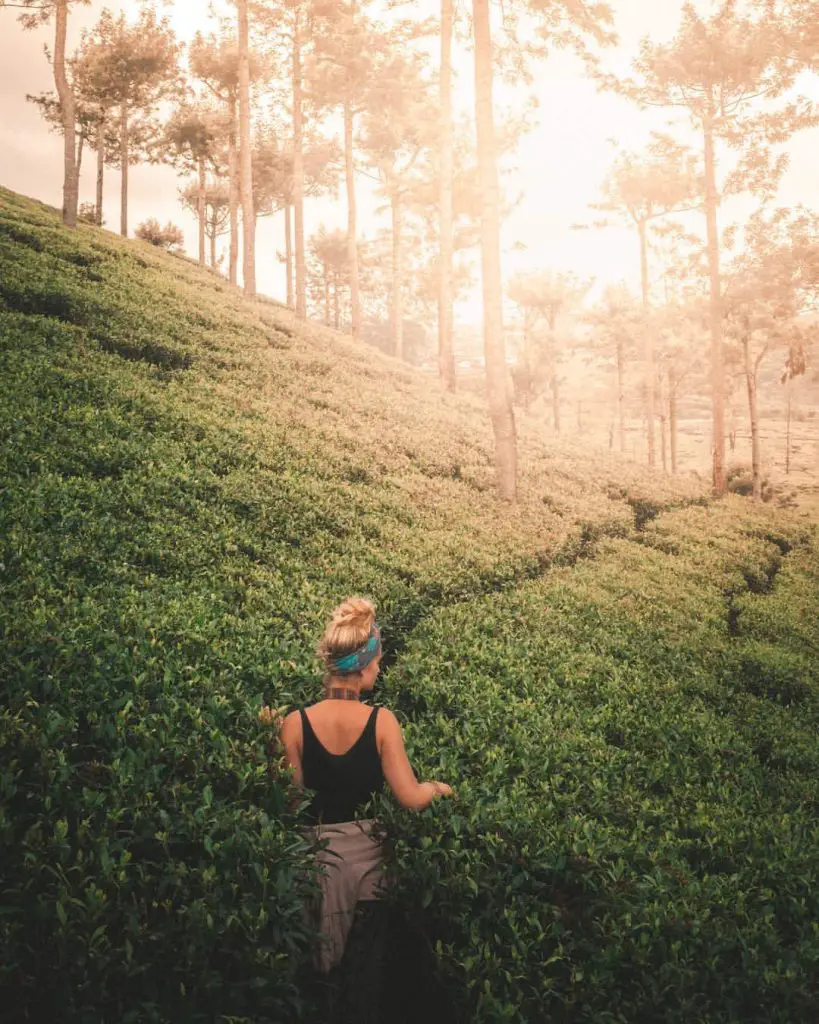
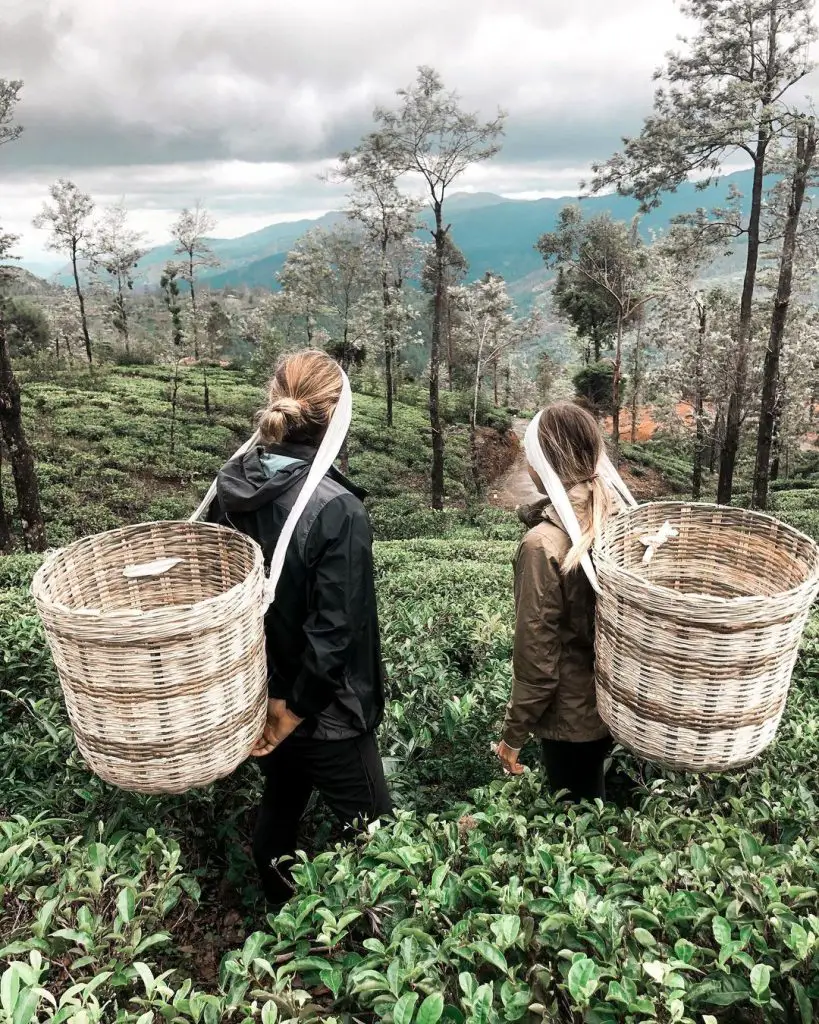
We will explore the numerous health benefits associated with drinking Sri Lankan tea, from its antioxidant properties to its ability to boost the immune system, aid in digestion, and promote relaxation and mental clarity. Get ready to embark on a captivating journey through the tea trails in Sri Lanka.
Table of Contents
What Are Tea Trails in Sri Lanka?
Tea trails in Sri Lanka offer a captivating journey through the rich history and culture of Ceylon tea, providing an immersive experience of the island’s iconic plantations and landscapes.
The lush greenery of the rolling hills adorned with neatly trimmed tea bushes creates a serene backdrop for visitors to soak in the natural beauty. As one traverses the gently sloping terrain, the air becomes filled with the sweet aroma of freshly brewed tea leaves, accentuating the sensory experience. Amidst these picturesque settings, one can also glimpse into the historical significance of tea cultivation, with colonial-era bungalows and factories adding a touch of antiquity to the landscape. The tea trails in Sri Lanka offer a unique blend of cultural heritage, natural splendor, and a deep appreciation for the art of tea-making.
History of Tea Plantations in Sri Lanka

The history of tea plantations in Sri Lanka is a testament to the legacy of Ceylon tea, showcasing the evolution of this industry and its profound impact on the island’s history and culture.
From the colonial era to the present day, the tea plantations have been integral to the socio-economic landscape of Sri Lanka. The British, with their expertise in tea production, played a pivotal role in shaping the industry during their rule. It’s essential to recognize the invaluable contributions of the indigenous communities, whose knowledge and traditions have been fundamental in cultivating and processing tea. Their influence is deeply rooted in the very essence of Ceylon tea, adding layers of cultural significance to the plantations and the nation as a whole.
British Influence on Tea Plantations
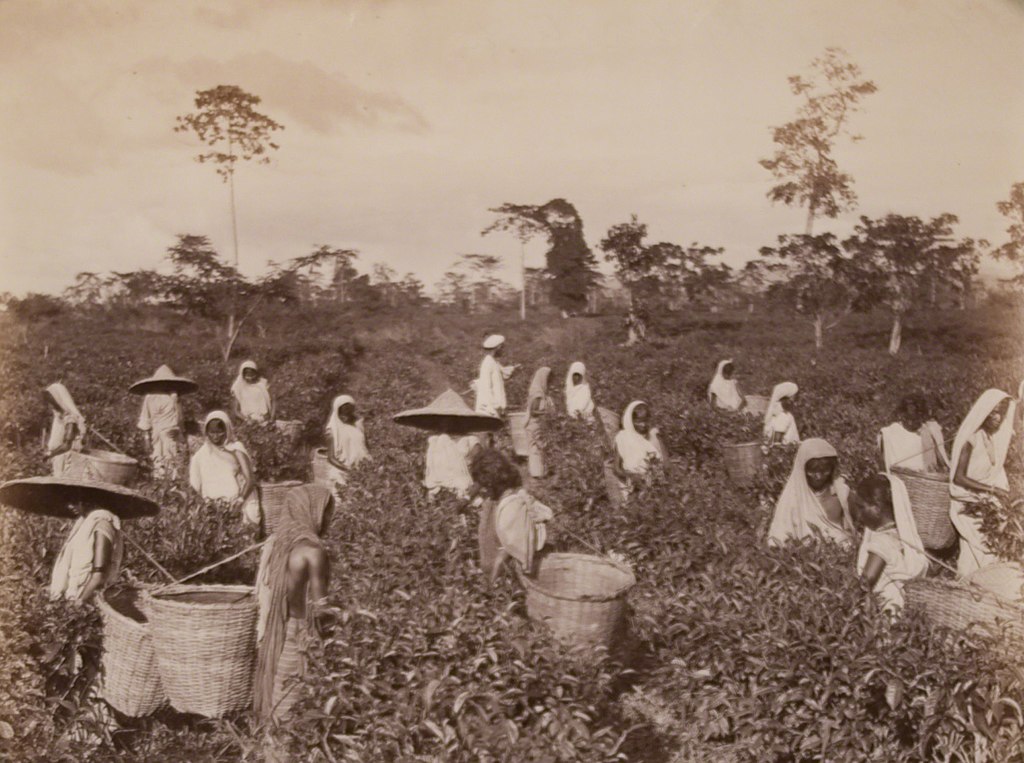
The British influence on tea plantations in Sri Lanka shaped the industry’s structure, production methods, and cultural significance, leaving a lasting imprint on the island’s tea heritage.
Their colonial legacy introduced large-scale tea cultivation, transforming the landscape and economy of the island. The British brought technological advancements that revolutionized tea production, such as withering troughs and mechanical rollers, significantly improving efficiency and quality. These innovations, combined with the British demand for tea, propelled the evolution of tea production in Sri Lanka, making it one of the world’s leading tea producers.
The British influence is deeply intertwined with the history and success of the island’s tea industry.”
Types of Tea Grown in Sri Lanka
Sri Lanka boasts a diverse range of tea types, including black, green, white, and oolong teas, each offering distinct flavors and characteristics reflective of the island’s unique terroir. Black teas, such as Ceylon tea, are robust and full-bodied with a rich, malty flavor, perfect for a morning pick-me-up.
Green teas from Sri Lanka, like Gunpowder and Hyson, are known for their fresh, grassy notes and refreshing aroma. Meanwhile, white teas, such as Silver Tips, offer a delicate and subtly sweet taste with floral undertones.
Oolong teas, like Ceylon Souchong, combine the qualities of both black and green teas, with a nuanced and complex flavor profile. The artful process of withering, rolling, oxidation, and firing, integral to tea production in Sri Lanka, adds to the uniqueness and cultural significance of these teas.
Black Tea
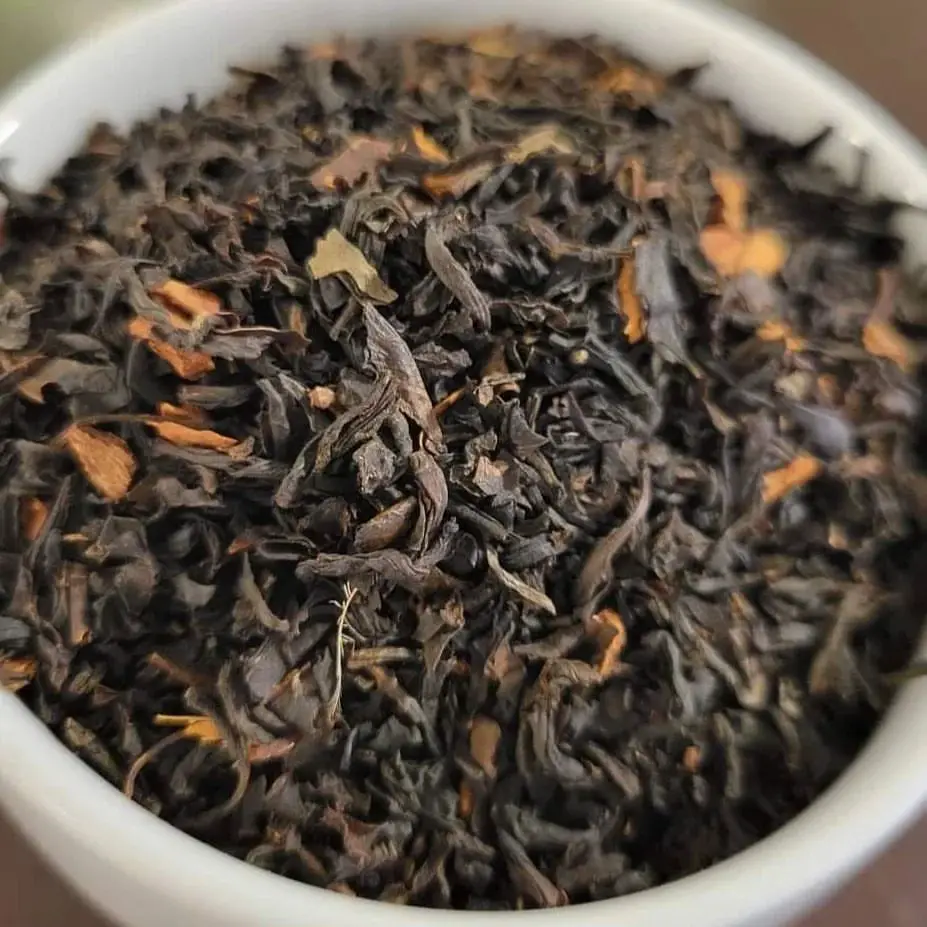
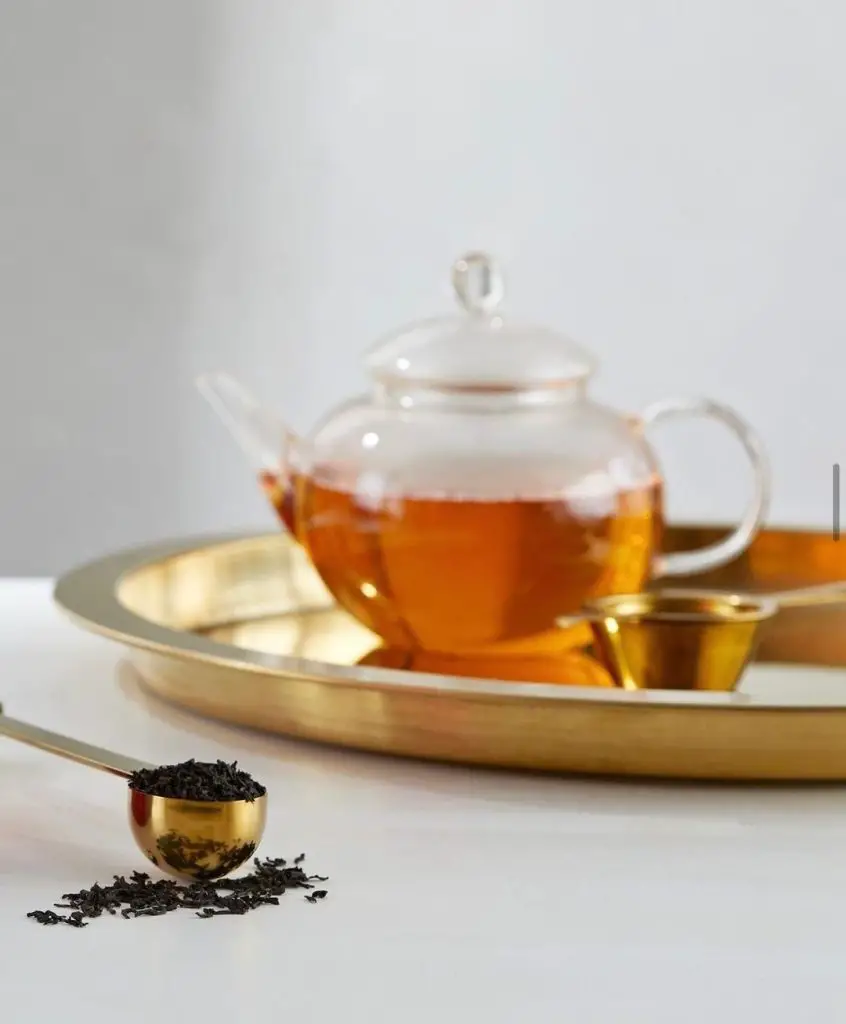
Black tea, a cornerstone of Sri Lanka’s tea industry, is celebrated for its robust flavor, brisk taste, and deep historical roots, embodying the essence of Ceylon’s tea heritage.
It holds great significance as one of the country’s most significant exports and a key component of its economy. The unique processing techniques involved in its production, such as withering, rolling, oxidizing, and firing, contribute to its distinct flavor profile and quality. Black tea is deeply interwoven with Sri Lankan culture, often being served during social gatherings, religious ceremonies, and as a gesture of hospitality to guests, showcasing its integral role in the fabric of daily life.
Green Tea
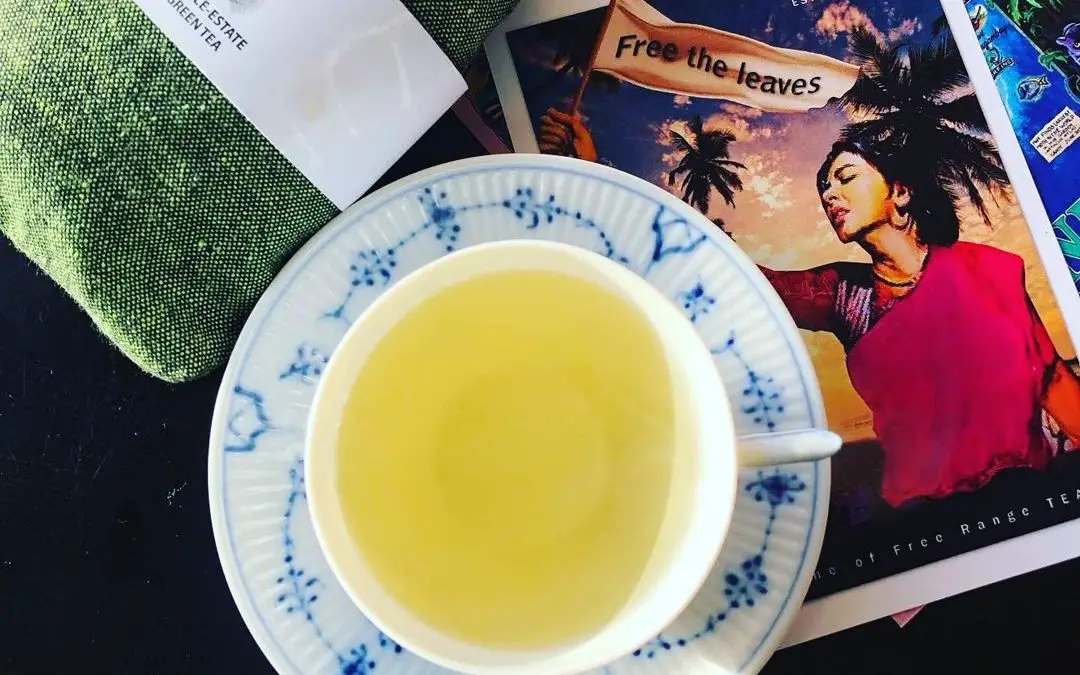
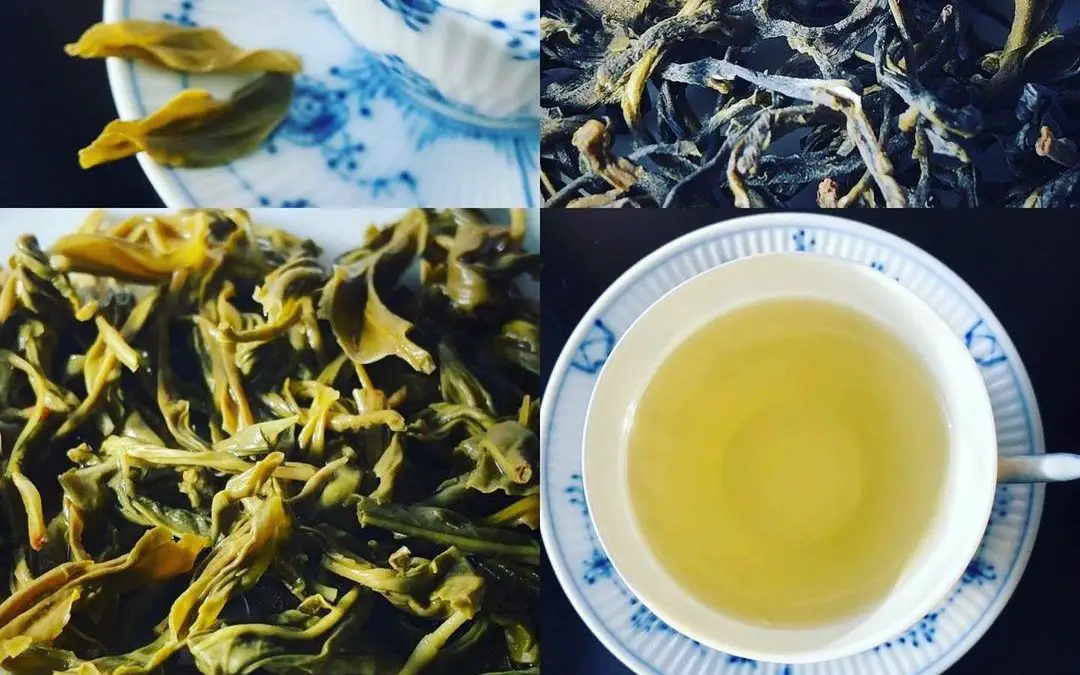
Green tea, renowned for its delicate flavors and health benefits, represents a flourishing segment of Sri Lanka’s tea production, reflecting the country’s commitment to quality and diversity.
Its rich history dates back to ancient times, with traditional cultivation and production methods still being honored today. The natural beauty of Sri Lanka’s tea gardens and the unique climate contribute to the superior quality of the green tea grown in the region.
The cultural significance of green tea in Sri Lanka is evident in its role in social gatherings and traditional ceremonies, making it an integral part of the country’s identity and heritage.
White Tea
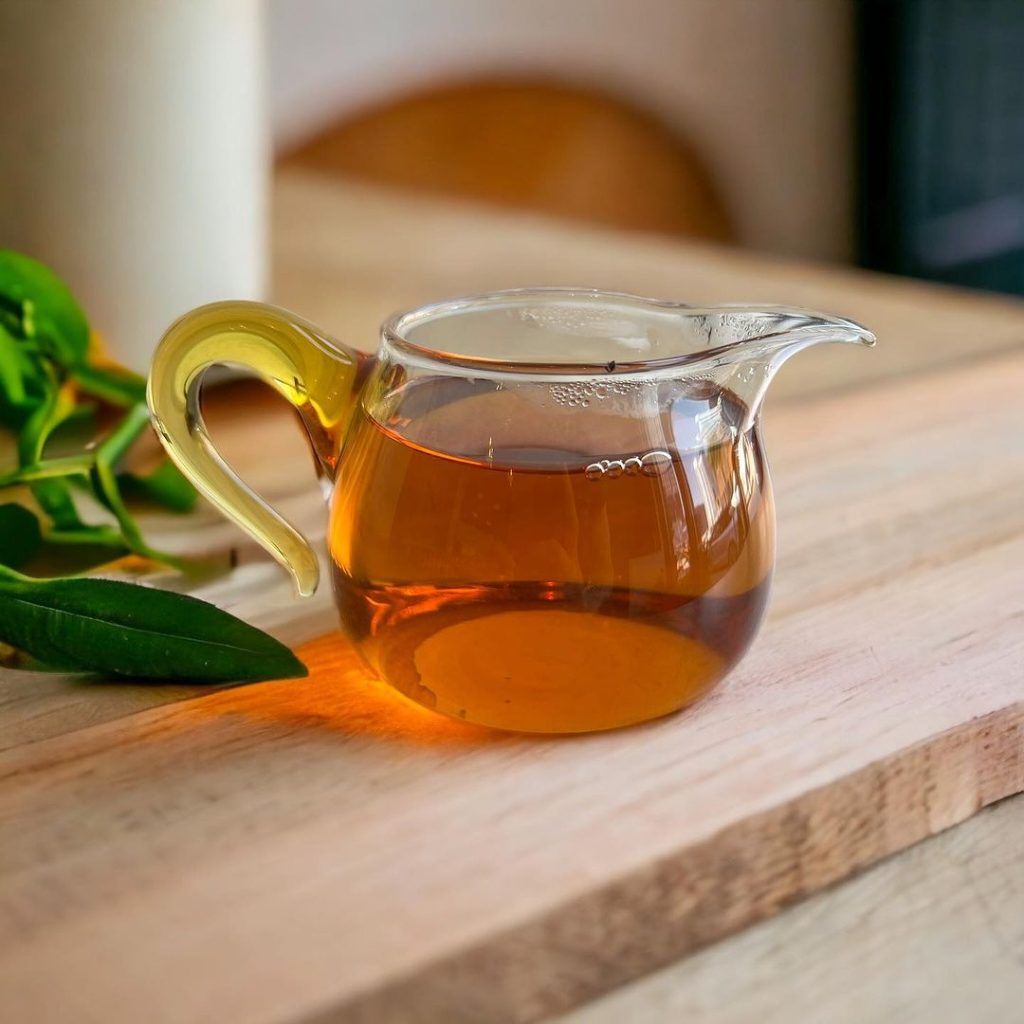
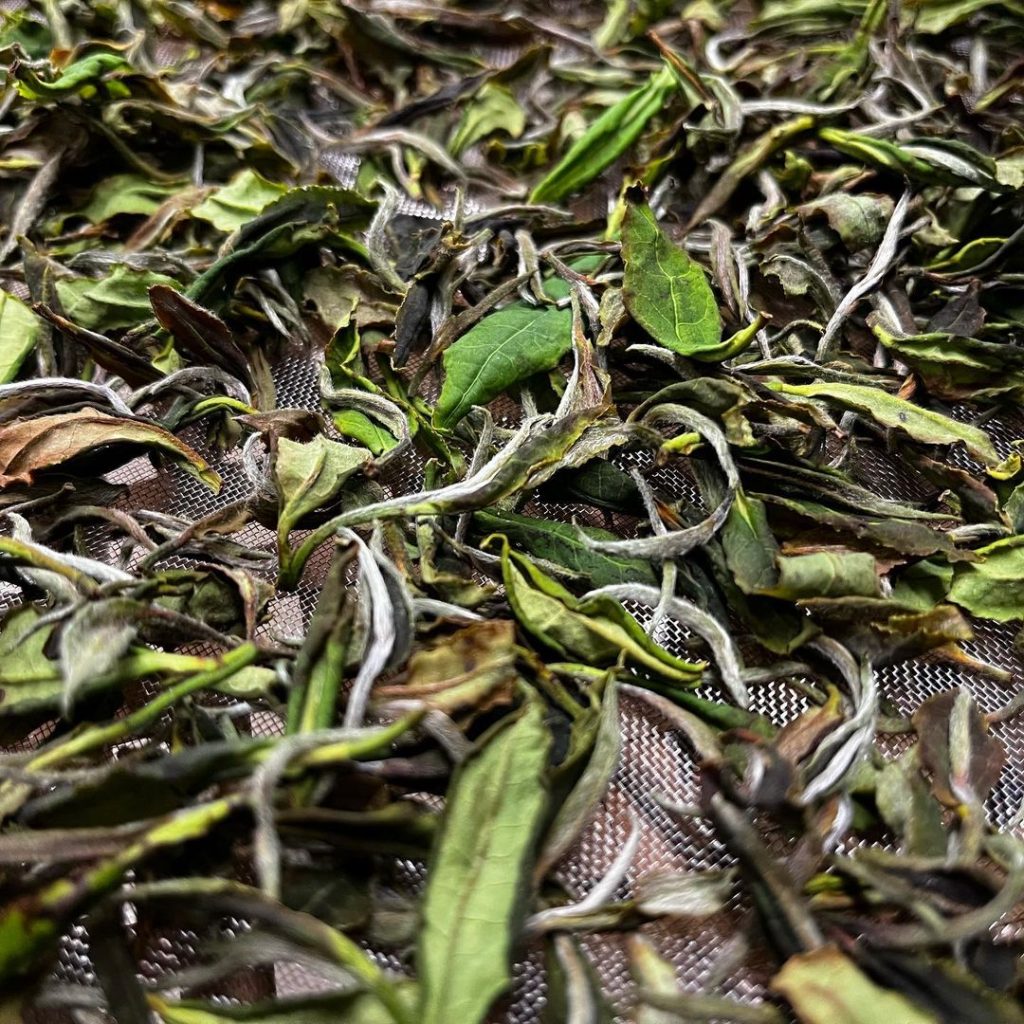
White tea, prized for its subtle flavors and delicate aroma, embodies the artistry of Sri Lanka’s tea craftsmanship, offering a glimpse into the country’s dedication to premium tea varieties.
The production of white tea in Sri Lanka is a meticulous process, with the young leaves and buds being carefully plucked and dried to preserve their natural sweetness. This minimal processing allows the tea to retain its delicate, light characteristics, making it a rare and sought-after indulgence.
Its cultural significance is evident in traditional ceremonies where white tea is revered for its purity and tranquility, reflecting the gentle spirit of the Sri Lankan tea culture.
Oolong Tea
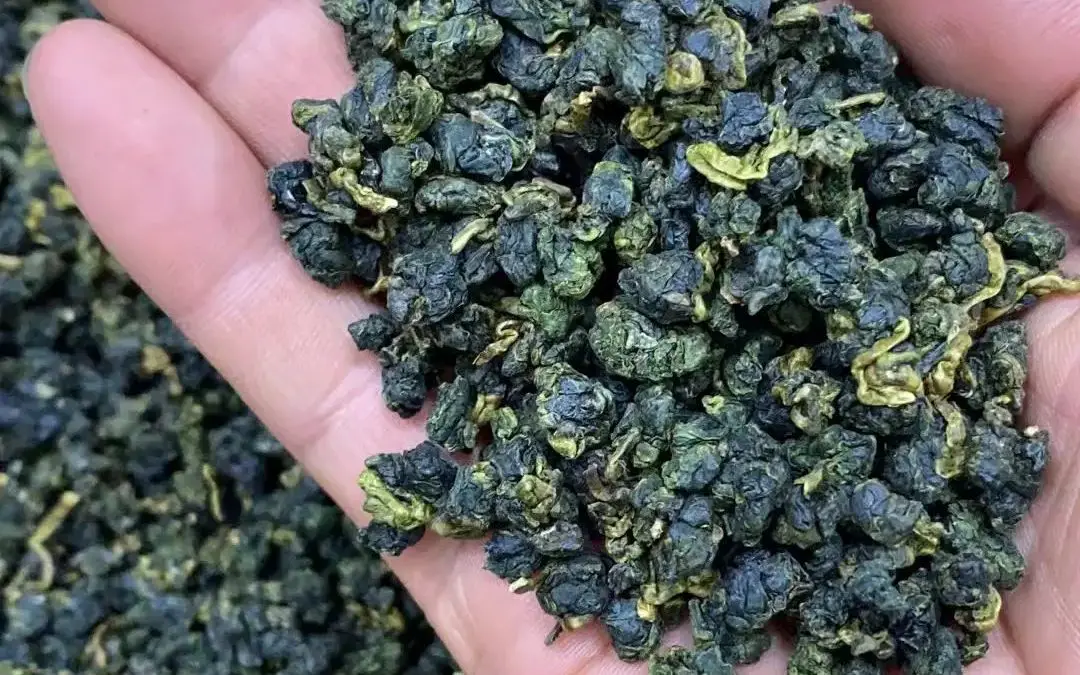
Oolong tea, with its nuanced flavors and semi-oxidized character, represents a fascinating aspect of Sri Lanka’s tea diversity, embodying the country’s pursuit of exquisite and distinctive tea offerings.
This unique tea variety undergoes a labor-intensive processing method, involving partial oxidation, which contributes to its diverse flavor profile. The complex and rich taste of oolong tea varies from floral and fruity notes to a mild, sweet finish, captivating tea enthusiasts worldwide.
Oolong tea holds cultural significance in Sri Lanka, being enjoyed during social gatherings, ceremonies, and daily rituals, reflecting the deeply ingrained tradition and love for tea in the country’s heritage.
What Makes Tea Trails in Sri Lanka Special?
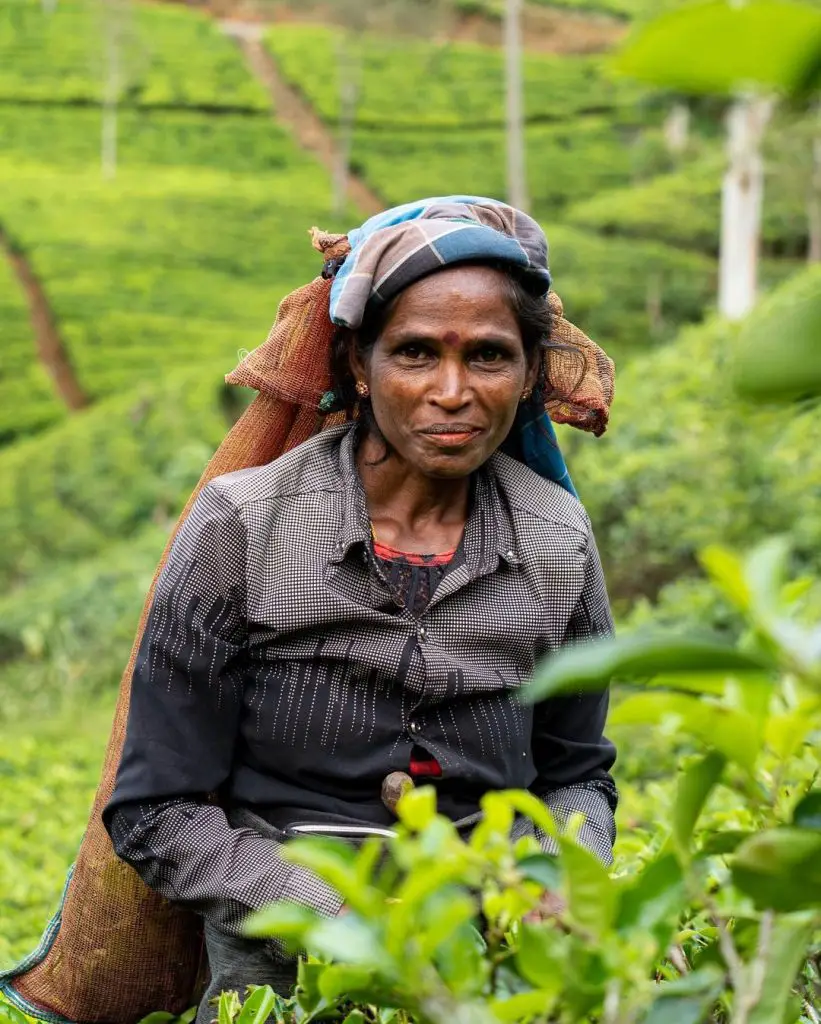
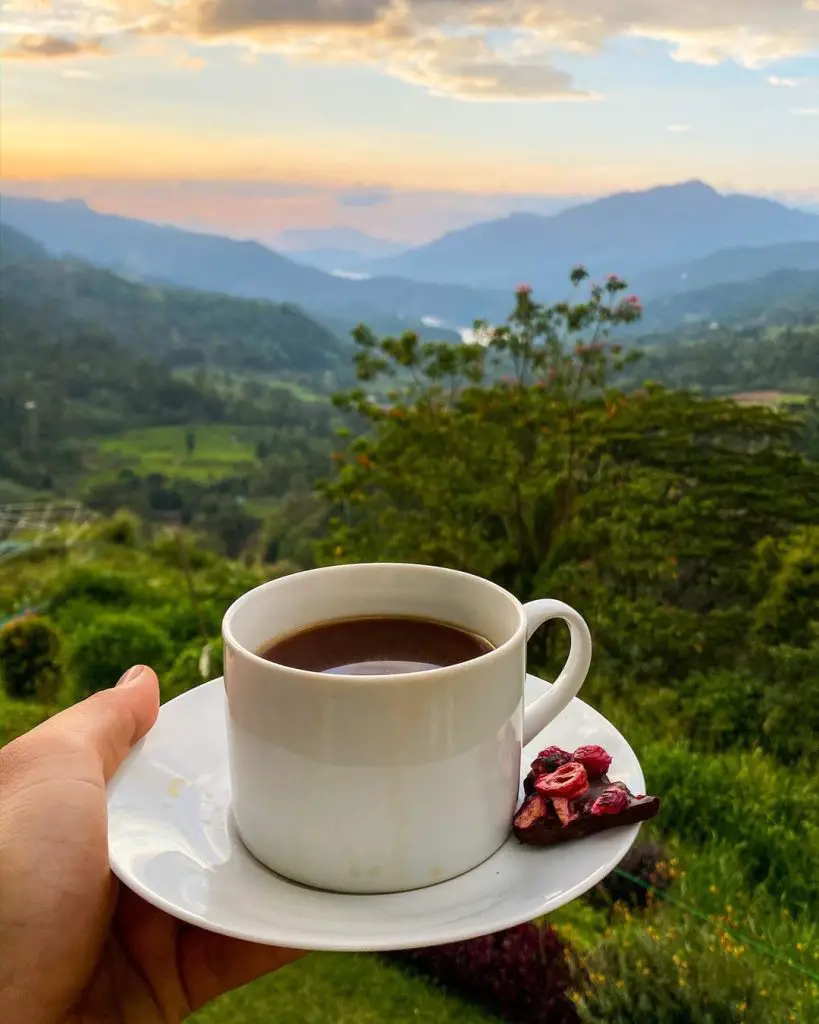
The uniqueness of tea trails in Sri Lanka is attributed to the ideal climate and soil conditions, the meticulous hand-picking and hand-rolling of tea leaves, and the resulting diverse and captivating flavor profiles that define the island’s teas.
The specific climate and rich, fertile soil of Sri Lanka, with its varying elevations, contribute to the distinctive taste and quality of its teas. The artisanal processes, passed down through generations, ensure that each leaf is carefully selected and rolled by hand, a tradition that brings out the nuanced flavors in every brew.
As a result, Sri Lankan teas offer a wide array of flavors – from delicate and floral to robust and full-bodied – making each cup a true sensory experience for tea enthusiasts around the world.
Suggestions | Read Now : Sri Lanka Travel Cost Guide for Budgeting Your Trip In 2024
Climate and Soil Conditions
The favorable climate and soil conditions in Sri Lanka create an optimal environment for tea cultivation, contributing to the exceptional quality and distinctive characteristics of the island’s teas.
The unique combination of tropical heat, high humidity, and consistent rainfall, along with the rich, well-drained soils rich in nutrients, provides the ideal foundation for the growth of tea plants. The climate and soil directly influence the flavor and aroma of Sri Lankan teas, imparting a smooth, brisk taste and a fragrant, bright liquor that tea enthusiasts worldwide appreciate.
The elevations and microclimates across the island further add complexity to the teas, offering a diverse range of flavors, from delicate and floral to robust and bold, setting Sri Lankan teas apart in the global market.
Hand-picked and Hand-rolled Tea Leaves
The tradition of hand-picking and hand-rolling tea leaves in Sri Lanka reflects a commitment to artisanal excellence, ensuring the preservation of tea quality and the creation of unique flavor profiles that captivate tea enthusiasts worldwide.
This long-standing heritage of handcrafting reflects the dedication of the local communities to preserving the delicate nuances of each tea leaf. Hand-picking ensures only the finest and freshest leaves are selected, contributing to the exceptional quality of Sri Lankan tea.
The meticulous process of hand-rolling the leaves imparts a distinct character to each batch, resulting in a diverse spectrum of flavors that showcase the rich terroir of Sri Lanka’s tea-growing regions.
Unique Flavor Profiles
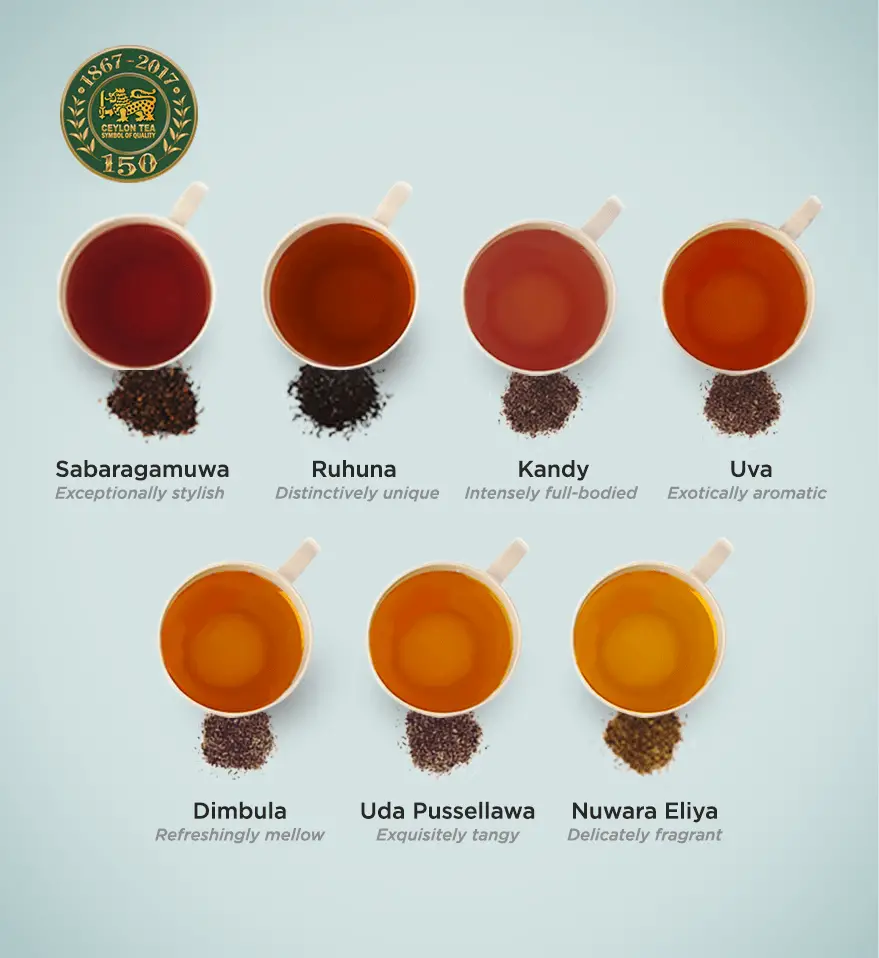
Sri Lanka’s tea trails offer an exquisite array of unique flavor profiles, each representing the distinct terroir, craftsmanship, and cultural heritage embedded in the island’s diverse tea offerings.
The teas from the low-lying coastal regions often exude a smooth and mellow character with delicate floral notes, while those grown in the elevated central mountains boast a robust and brisk flavor with hints of caramel and citrus.
The rich cultural significance of tea in Sri Lanka is evident in the traditional tea ceremonies, where the meticulous preparation and serving of tea symbolize hospitality and warmth deeply rooted in the island’s heritage.
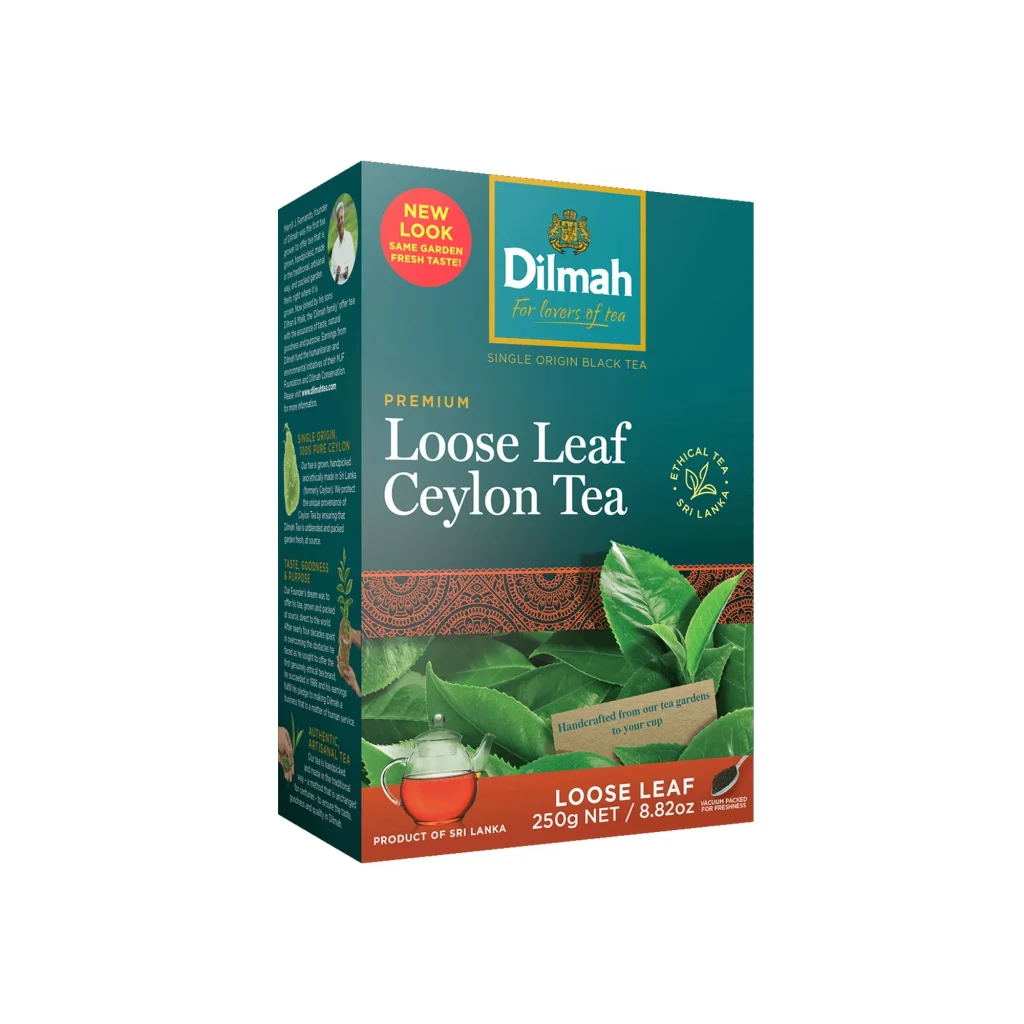
Dilmah Flavored Tea Selection
Combining natural ingredients and flavours with pure Ceylon tea to provide a delicious cup of flavoured black or green tea.
How to Experience Tea Trails in Sri Lanka?

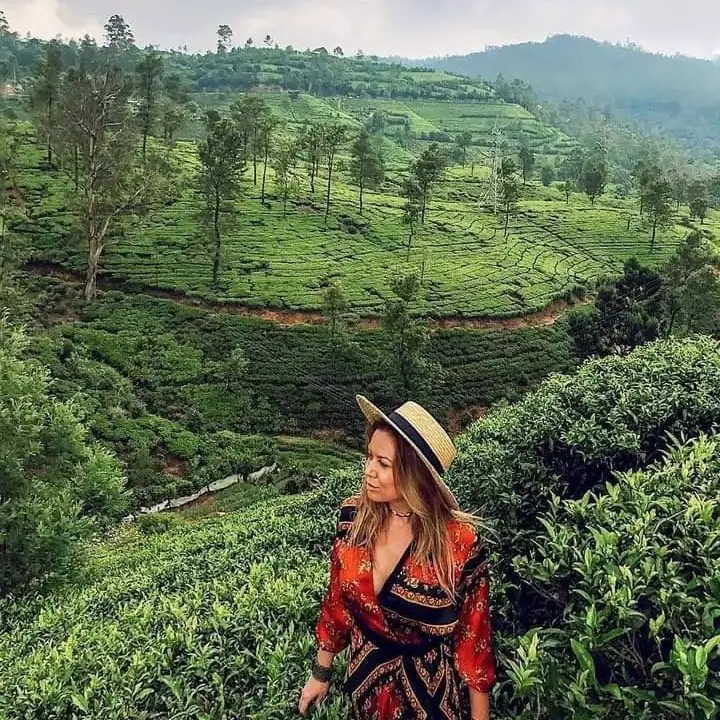
Experiencing tea trails in Sri Lanka involves visiting enchanting tea plantations, participating in immersive tea tasting sessions, and indulging in the tranquil charm of tea estate bungalows, offering a delightful blend of nature, heritage, and relaxation.
The lush greenery of the plantations provides a soothing backdrop for leisurely strolls, while the aroma of freshly brewed tea tantalizes the senses during the tasting experiences. Staying at estate bungalows allows for a deeper connection with the history and culture of tea production, with opportunities to learn about the intricate process from leaf to cup.
The idyllic surroundings and warm hospitality make these tea trails a must-visit for those seeking a serene escape amidst the picturesque landscapes of Sri Lanka.
Visiting a Tea Plantation
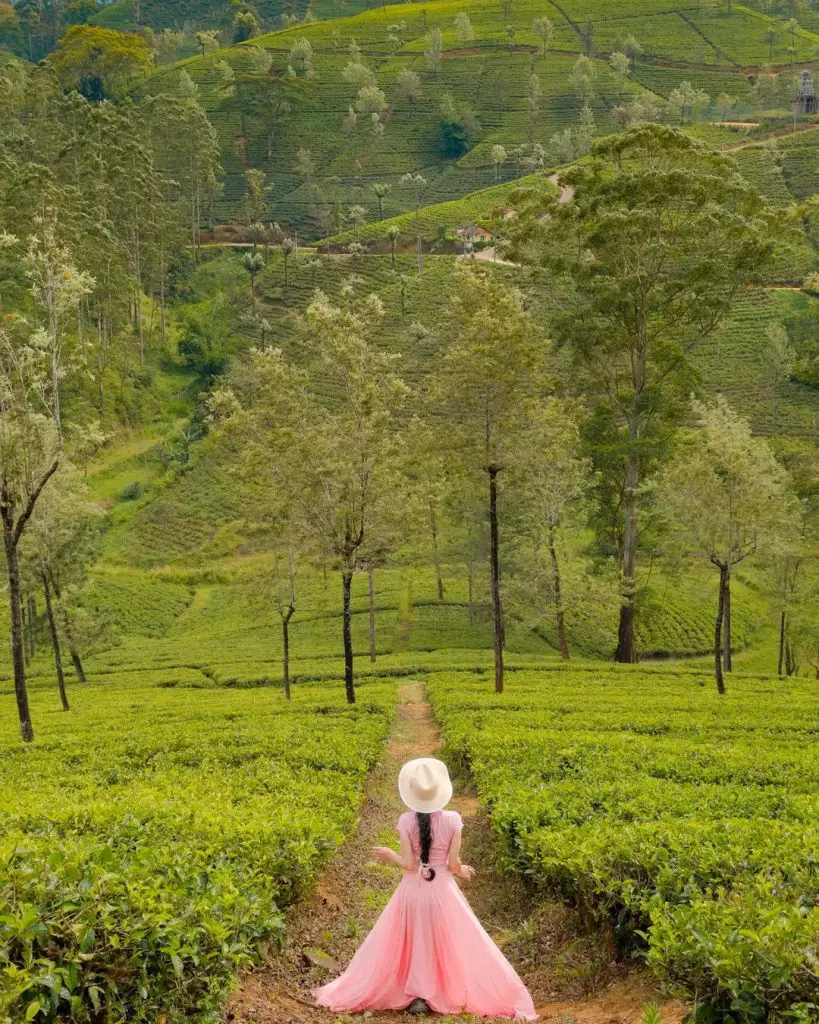
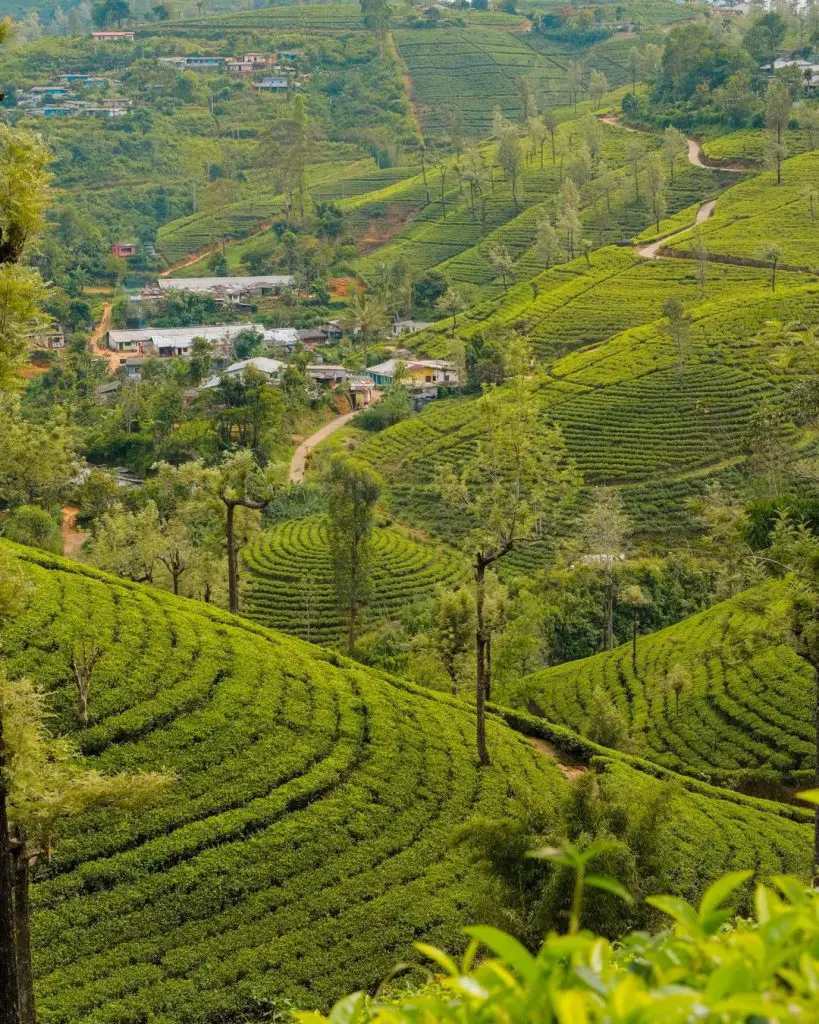
Visiting a tea plantation in Sri Lanka offers an enriching insight into the tea cultivation process, providing an immersive journey through the picturesque landscapes and the heritage of Ceylon’s tea industry.
The lush, undulating hills adorned with neatly arranged tea bushes create a mesmerizing panorama, further accentuated by the timeless rituals of plucking and processing tea leaves. Delving into the historical significance, visitors can trace the origins of Ceylon tea and its impact on international trade, gaining a profound appreciation for the profound role played by tea in shaping the nation’s identity and economy.
The journey through the plantations offers a deep understanding of the skill and dedication required for producing the perfect cup of tea.
Participating in a Tea Tasting Session
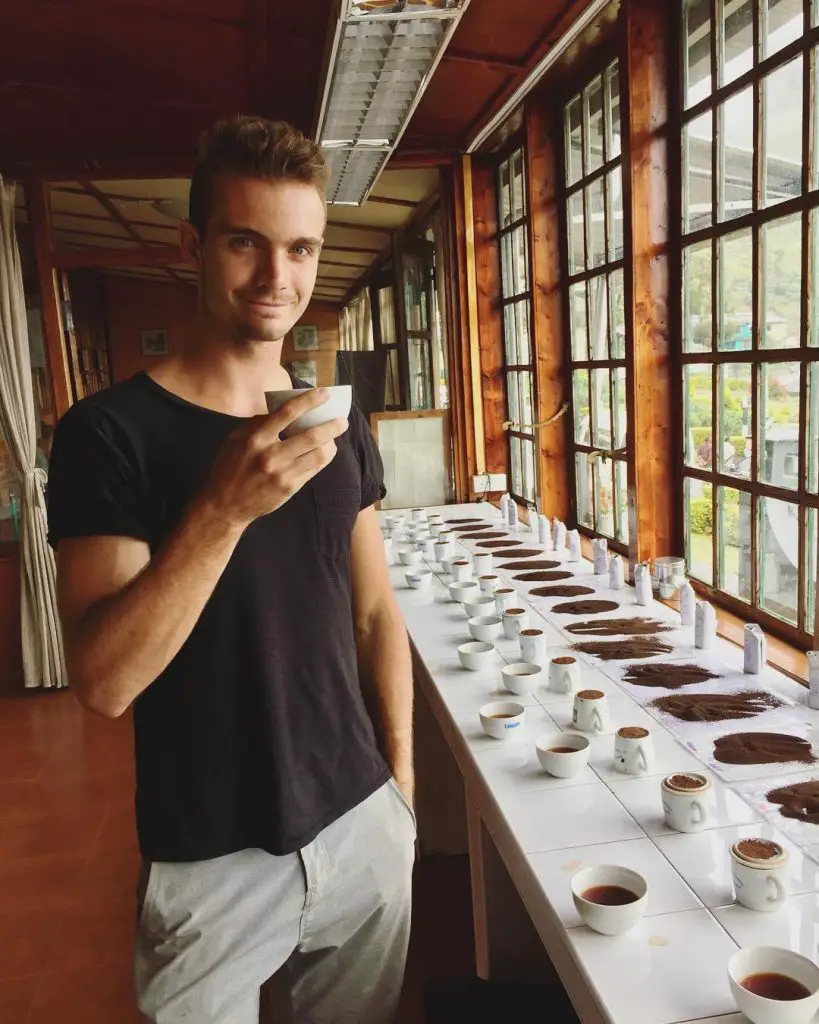
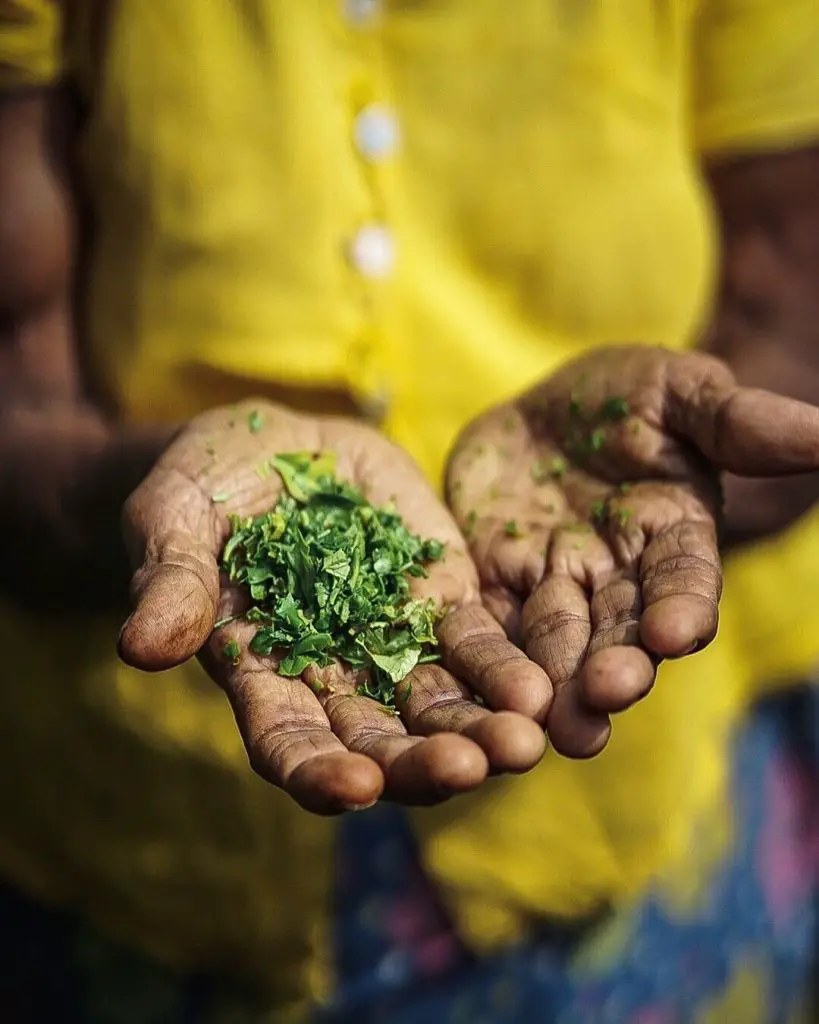
Participating in a tea tasting session in Sri Lanka allows for an exploration of the diverse flavors and aromas of Ceylon tea, offering a sensory journey through the distinctive profiles and cultural heritage of the island’s renowned brews.
Engaging in these tastings immerses participants in a rich tapestry of scents and tastes, from the bright and citrusy notes of high-grown teas to the robust and malty undertones of low-grown varieties. As each cup is savored, the layers of history and tradition behind the tea unfold, connecting enthusiasts to the centuries-old craftsmanship and rituals encapsulated within every sip. Through this immersive experience, one gains a deeper appreciation for the significance of tea in the social fabric of Sri Lanka and its influence on global tea culture.
Staying at a Tea Estate Bungalow
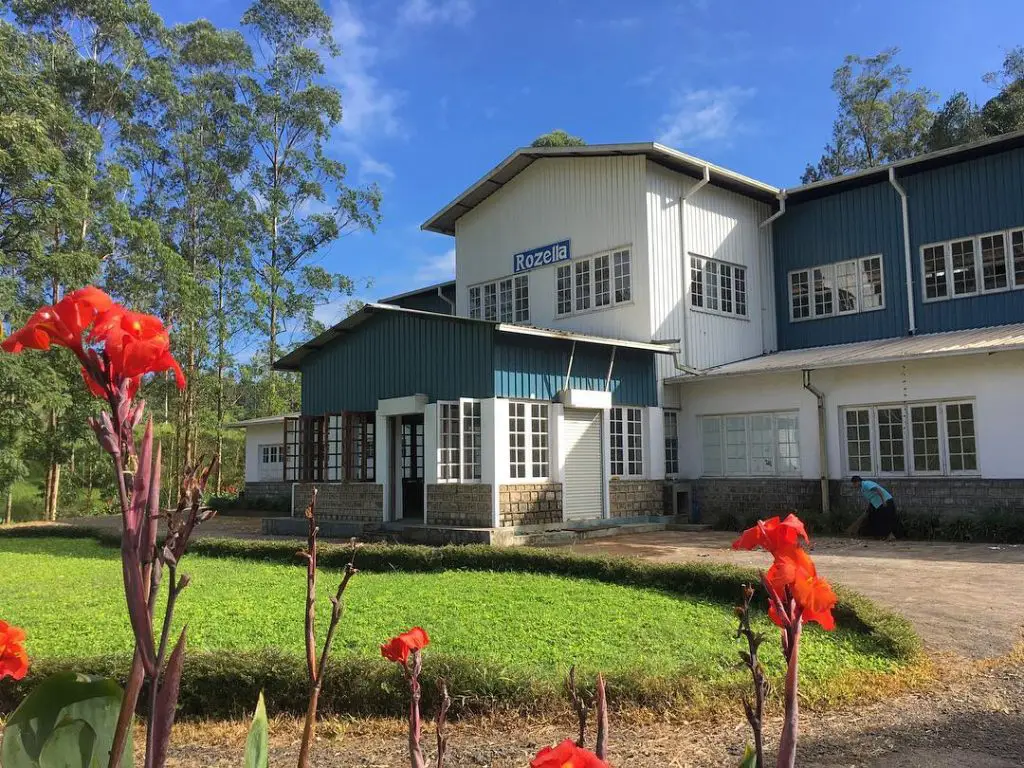
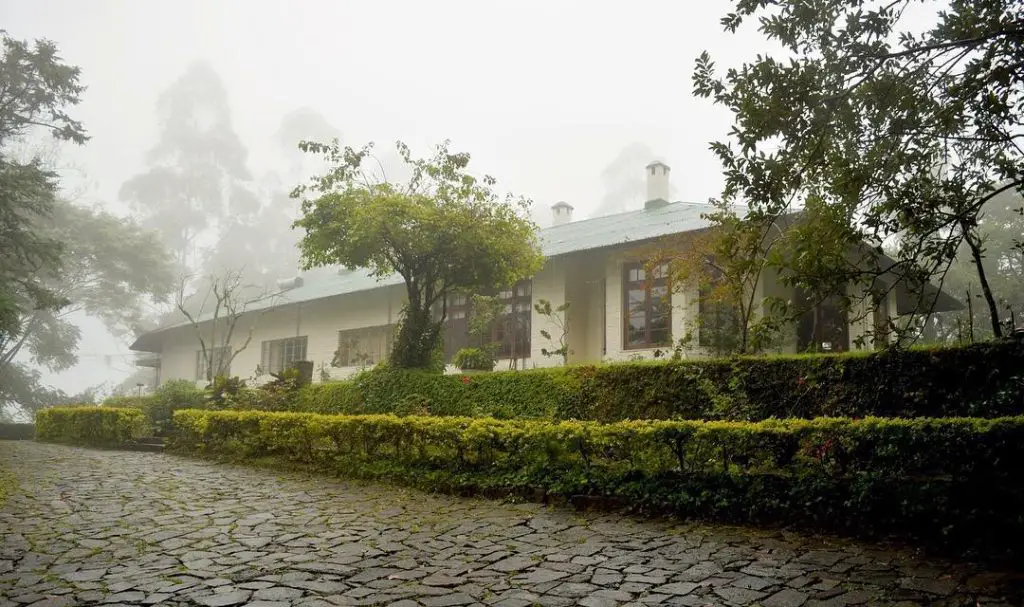
Staying at a tea estate bungalow in Sri Lanka provides an immersive retreat into the heart of tea country, offering a tranquil and rejuvenating experience amidst the lush greenery and storied heritage of the island’s tea estates.
The bungalows, with their colonial charm, invite guests to step into a bygone era while still enjoying modern comforts. Waking up to the sight of undulating tea plantations and breathing in the crisp, invigorating mountain air creates a sense of deep serenity. Exploring the surrounding nature trails reveals a diverse array of flora and fauna, adding to the enchanting atmosphere. Engaging with the friendly local tea pickers provides a genuine insight into the area’s rich cultural tapestry.
What Are the Benefits of Drinking Sri Lankan Tea?
Drinking Sri Lankan tea offers a multitude of benefits, including the presence of antioxidants, relaxation, aid in digestion, and the promotion of overall well-being, making it a wholesome and rejuvenating beverage choice.
Incorporating Sri Lankan tea into your daily routine can boost your immune system and protect your body from oxidative stress, which helps in combating various diseases. The soothing properties of this tea can calm your mind and reduce stress, promoting mental well-being.
The natural compounds in Sri Lankan tea aid in better digestion, reducing bloating and discomfort after meals, contributing to a healthier gastrointestinal system.
Antioxidant Properties
Sri Lankan tea is renowned for its rich antioxidant properties, offering a natural and healthful beverage choice that supports overall wellness and vitality.
The antioxidants in Sri Lankan tea, such as catechins and polyphenols, play a vital role in neutralizing harmful free radicals in the body, which can contribute to various diseases and aging. Regular consumption of this tea has been linked to improved heart health, reduced risk of chronic conditions, and enhanced immune function. By combating oxidative stress and inflammation, the antioxidants in Sri Lankan tea contribute to maintaining a healthy body and promoting longevity. This makes it a popular choice for those seeking a delicious way to support their well-being.
Boosts Immune System
Consuming Sri Lankan tea can contribute to boosting the immune system, providing natural support for the body’s defenses and overall resilience.
The antioxidants present in Sri Lankan tea, such as polyphenols and catechins, play a vital role in enhancing immune function. The blend of vitamins and minerals found in this tea, including vitamin C and zinc, further fortify the body’s ability to ward off infections and illnesses.
Regular consumption of Sri Lankan tea can help maintain a healthy immune system and promote overall wellness, making it a beneficial addition to one’s daily routine.
Aids in Digestion
Sri Lankan tea aids in digestion, offering a soothing and comforting beverage that promotes digestive wellness and overall comfort.
Its gentle nature calms the stomach and helps alleviate bloating and discomfort after meals. The unique blend of natural antioxidants and polyphenols in Sri Lankan tea supports the body’s digestive processes, aiding in the breakdown of food and enhancing nutrient absorption. Regular consumption of this invigorating brew can contribute to a balanced and harmonious digestive system, providing relief from common digestive issues and maintaining overall gastrointestinal health.
Promotes Relaxation and Mental Clarity
Indulging in Sri Lankan tea promotes relaxation and mental clarity, offering a serene and rejuvenating beverage that soothes the mind and rejuvenates the spirit.
The unique blend of antioxidants and amino acids in Sri Lankan tea contributes to its calming properties, helping to alleviate stress and anxiety. With its subtle yet distinct flavors, this tea provides a moment of tranquility, allowing the drinker to unwind and find peace amidst the chaos of daily life.
The ritual of preparing and savoring a cup of Sri Lankan tea can also serve as a meditative practice, fostering mindfulness and mental calmness.
Frequently Asked Questions
What is Tea Trails In Sri Lanka?
Tea Trails Sri Lanka is a luxurious resort located in the heart of Sri Lanka’s scenic tea country. It is renowned for its stunning views, traditional tea plantations, and world-class service.
What activities can I do at Tea Trails In Sri Lanka?
Guests at Tea Trails in Sri Lanka can enjoy a variety of activities, including tea picking and tasting, scenic hikes, bird watching, and spa services. The resort also offers cultural experiences and visits to local tea factories.
How do I get to Tea Trails In Sri Lanka?
Tea Trails in Sri Lanka is accessible by car or helicopter from Colombo, the capital of Sri Lanka. The resort also offers private transfers from nearby airports and train stations.
What are the accommodation options at Tea Trails In Sri Lanka?
Tea Trails in Sri Lanka offers a range of luxurious bungalows, each with its own unique charm and character. Guests can choose from a variety of room types, including Garden Suites, Luxury Rooms, and Master Suites.
Is Tea Trails In Sri Lanka suitable for families?
Yes, Tea Trails in Sri Lanka welcomes families and offers special activities and amenities for children, including a designated kids’ play area and menu. The resort also offers babysitting services upon request.
What is the best time to visit Tea Trails In Sri Lanka?
The best time to visit Tea Trails in Sri Lanka is from December to March, when the weather is dry and pleasant. However, the resort is open year-round and each season offers its own unique beauty and experiences.




